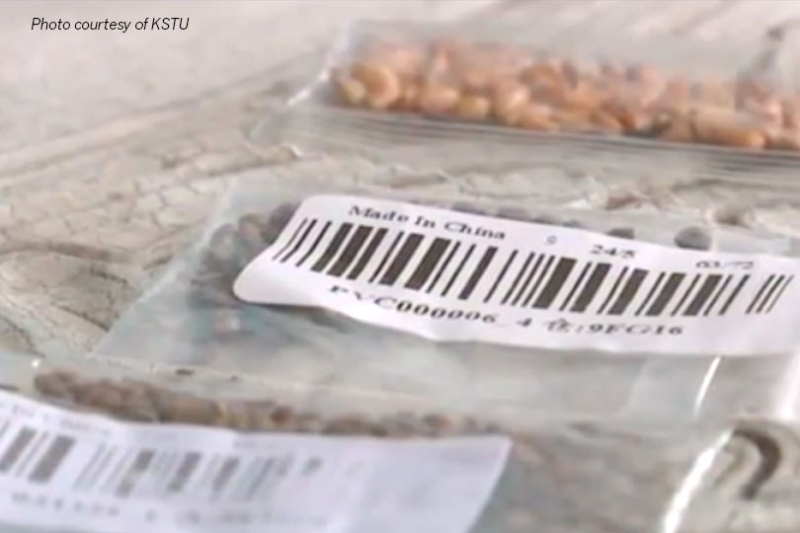By Jennifer Whitlock
Field Editor
After a lengthy probe into the thousands of reports from U.S. citizens who received unsolicited packages of mystery seeds in the mail, the U.S. Department of Agriculture’s (USDA) Animal and Plant Health Inspection Service (APHIS) determined the seeds were not sent in an attempt to attack American agriculture.
“There is no correlation between where the seeds were sent and U.S. critical agricultural infrastructure,” APHIS said in a statement.
To help combat misinformation, the agency released additional guidance that will assist buyers and sellers in complying with U.S. law when importing seeds and live plants from other countries.
“Plants and seeds for planting purchased online from other countries can pose a significant risk to U.S. agriculture and natural resources, because they can carry harmful insects and pathogens,” APHIS Plant Protection and Quarantine Program Deputy Administrator Dr. Osama El-Lissy said. “We’ve been working closely with e-commerce companies and other federal partners to stop the flow of illegal plant and seed shipments from entering the country. This new site is a big step forward in our efforts to facilitate the safe trade of plants and seeds through the e-commerce pathway.”
The guidance, Buying and Selling Plants and Seeds Online, outlines buyer and seller responsibilities, offers information on plant and seed species that have additional import requirements and provides a list of prohibited plants and seeds for import into the U.S. It also lists required documents, such as import permits and phytosanitary certificates.
APHIS published the site after investigating many reports of unsolicited seed deliveries that began suddenly in July 2020.
The agency confirmed some seeds were sent to the U.S. unsolicited, but others were seeds ordered by recipients who were unaware they would be coming from a foreign country.
Most of the seed shipments were illegal, because they lacked the necessary permit or phytosanitary certificate. While there was no evidence of foul play or intent to harm U.S. agriculture, the results could have been far worse if noxious plant species seeds or pathogens had inadvertently been sent.
The agency now believes the unsolicited seeds were used in an internet “brushing scam,” where e-commerce sellers ship inexpensive items to increase transactions. As transaction numbers increase, a seller’s rating also increases, making them appear more trustworthy and pushing up their products in search result rankings.
Investigators are now working with e-commerce companies to remove online sellers who have participated in illegal importation of plants or seeds.
“We are thankful to the public for reporting the seeds and getting them to USDA officials so that we could investigate them and avoid introducing foreign pests into our environment,” El-Lissy said.
If you or someone in your household receives an unsolicited package containing seeds or plant materials, or if you’d like additional information, contact APHIS’ Permits Help Desk by phone at 877.770.5990 or email plantproducts.permits@usda.gov.
Learn more about buying and selling plants and seeds in APHIS’ Buying and Selling Plants and Seeds Online guidance document.

